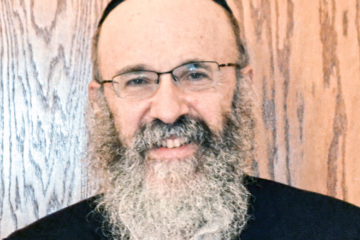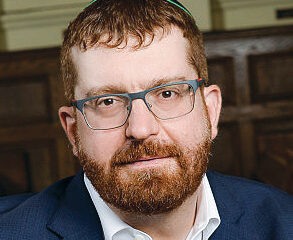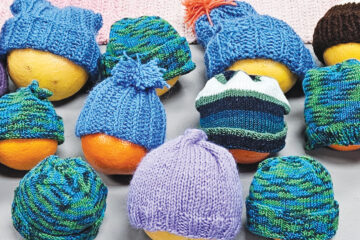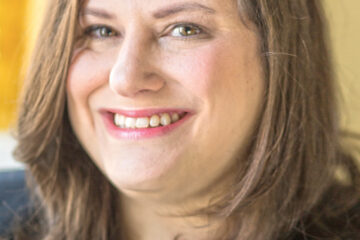Am Yisrael Chai – The People of Israel Live
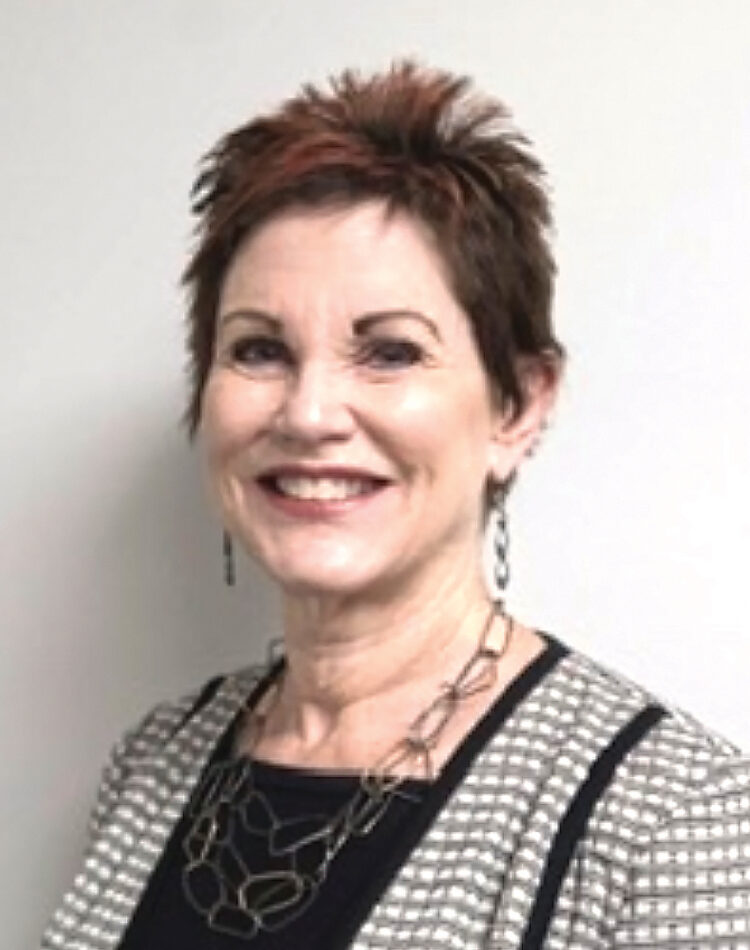
“Long live Europe, Am Yisrael Chai,” exclaimed European Commission President Ursula von der Leyen as she received an honorary doctorate from Ben-Gurion University last year. Her words were quickly decried on Twitter as imperialistic “racist Nazi slogans.”
In 2015, Itamar Ben-Gvir, Israel’s current national security minister, was arrested on the Temple Mount for saying, “Am Yisrael Chai.” Ben-Gvir made one of many controversial trips to the Jordanian Waqf-run Temple Mount in Jerusalem, where by informal agreement, Jews are not allowed to pray or carry political symbols. When a Muslim woman protested his presence, crying out “Allahu Akbar” (Allah is great), Ben-Gvir responded, “Am Yisrael Chai,” and was immediately arrested for praying.
Ironically, Israeli courts exonerated Ben-Gvir, ruling that the phrase is a patriotic slogan, not a prayer.
The origins of the well-known phrase Am Yisrael Chai (the people of Israel live) are unclear. The slogan is not in the Torah, Psalms, rabbinic literature, or ancient liturgy.
So is the saying an incitement, nationalistic policy, prayer, affirmation, or aspiration?
An early recording of the phrase was memorialized at the first Shabbat Service held for survivors at the Bergen-Belsen concentration camp on April 20, 1945. The downtrodden survivors had not participated in public prayer in years.
Their service concluded with the singing of Hatikvah, the anthem of the Zionist movement. Then, after a beat or two, the Rev. Leslie Hardman, the first Jewish chaplain to the British army, cried out, “Am Yisrael Chai.”
Hardman had that week said Kaddish over the mass graves of over 20,000 victims in the camp (possibly even Anne Frank, who is believed to have died there one month before liberation). He had circumcised baby boys who had been born there, and even conducted a wedding of a survivor to a British soldier.
He had faced so much death and horror that his response was an emotionally defiant promise that Israel’s people would hereafter live.
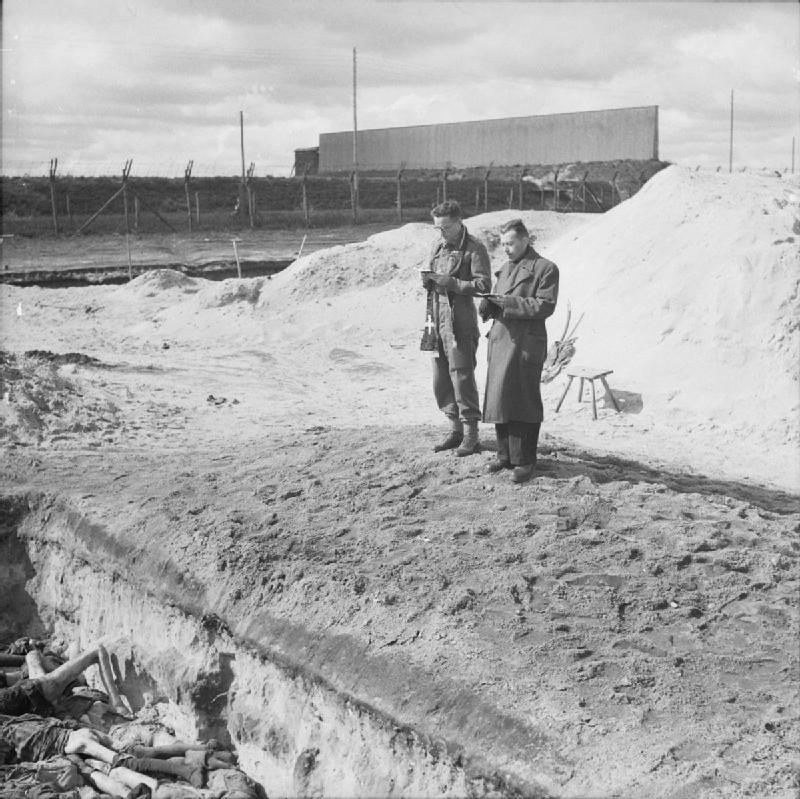
The Liberation of Bergen-Belsen Concentration Camp, April 1945. Two British Army chaplains, the Rev. Leslie H Hardman, Senior Jewish Chaplain to the 2nd Army (R), and the Roman Catholic Padre Father M C Morrison, conduct a service over one of the mass graves before it is filled in. Imperial War Museums.
Another citation of Am Yisrael Chai is said to have occurred in Stalinist Russia, where Soviet Jews faced massive religious persecution and Jewish life could only be practiced underground.
Golda Meir was sent as Israeli ambassador to Russia just months after the proclamation of the Jewish state. On Rosh Hashanah eve, Oct. 4, 1948, she was met by tens of thousands of Soviet Jews crowded around Moscow’s Great Synagogue, risking imprisonment or worse to celebrate their Jewish identity and to catch a glimpse of this emissary from the nascent Jewish state. They sang Am Yisrael Chai boldly.
This brave Jewish solidarity triggered more repression by Stalin and his successors. To survive, many Jews chose to conceal their identity or even erase it altogether.
In April 1964, human rights activist Yaakov Birnbaum, founder of the Student Struggle for Soviet Jewry (SSSJ), sought a unifying theme. He asked the composer and spiritual leader of the baalei teshuvah (returnees to Judaism) movement, Reb Shlomo Carlebach, to compose a tune to rally support worldwide for persecuted Soviet Jews.
Birnbaum vaguely recalled that the words Am Yisrael Chai had been an expression of defiance and hope in Nazi Germany, and after the war, it had been sung in Displaced Person camps. He wanted that slogan set to unforgettable music.
In March of 1965, on a visit to Communist-controlled Prague, Carlebach met with frightened Jewish youths afraid to celebrate Purim because of the KGB. Carlebach finally won them over, and they began dancing with him. The charismatic figure was so inspired that then and there, he composed our now-familiar melody to Am Yisrael Chai, adding the words Od Avinu Chai (Our Father is still alive).
Thus, Carlebach added a biblical and rabbinic context to Am Yisrael Chai. The biblical verse, “Our father is still alive” (Gen. 43:28), is Jacob’s 11 sons answering Joseph’s inquiry about his father’s wellbeing. The rabbinic commentary adds that Jacob (aka Israel) lives on through the patriarch’s progeny even after Jacob himself died (Ta’anit 5b).
By inserting these words, Carlebach added a spiritual addendum. Od Avinu Chai reiterates the first stanza: that Israel (the people named for the patriarch) is still alive.
However, it also hints at the theological implication that God, Israel’s true parent, exists and protects the Jewish people and the nation of Israel eternally.
Now a new liberation anthem was born for the Jewish people whether they knew Hebrew or not, whether free or fettered, religious or secular, in Israel or the Diaspora. It became a well-sourced expression of continuity, survival, pride, defiance, aspiration, and faith.
But is it a prayer? Dr. Rachel Naomi Remen relates the story of her grandfather teaching her the toast, L’chaim, to life, as a child.
“Is it to a happy life, Grandpa?” she asked him.
“No, it is just to live! Neshumale, my sweet soul.”
“Is it like a prayer?”
“Ah no,” he told her. “We pray for things we do not have. We already have life.”
“Is it written in the Bible, Grandpa?”
“No, Neshumale,” he said, “It is written in people’s hearts. L’chaim means that no matter what difficulty life brings, no matter how hard or painful or unfair life is, life is holy and worthy of celebration.”
During this spring season of festivals — Passover, Yom Hashoah, Yom Hazikaron, and Yom Ha’atzmaut — Am Yisrael Chai is the Jews’ all-purpose response.
We answer freedom and oppression, democracy and protest, war and peace with these words: The people of Israel live, our nation and our people continue to live and survive. May the choices we make help us thrive.
To read the complete April 2023 Dayton Jewish Observer, click here.


